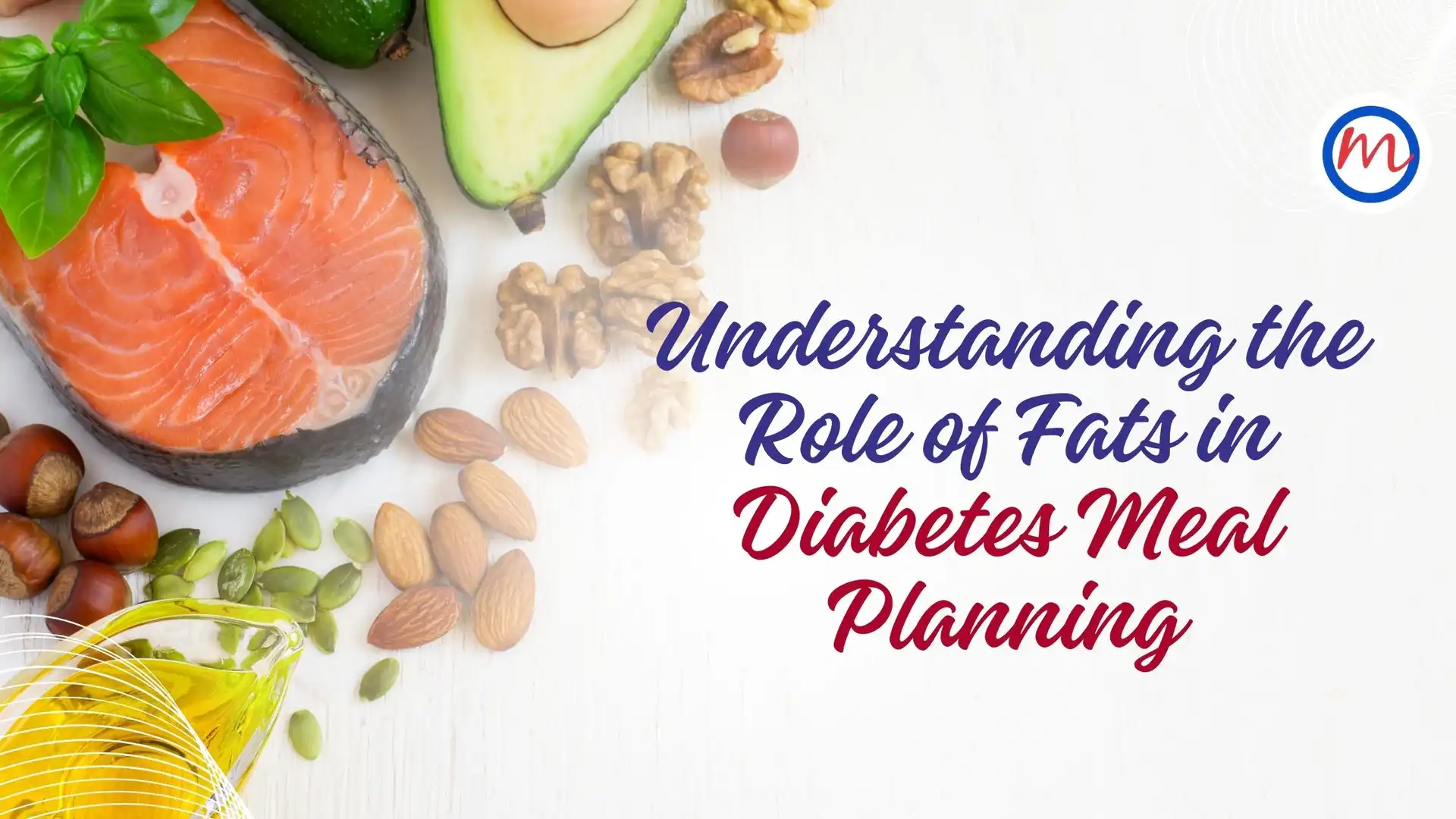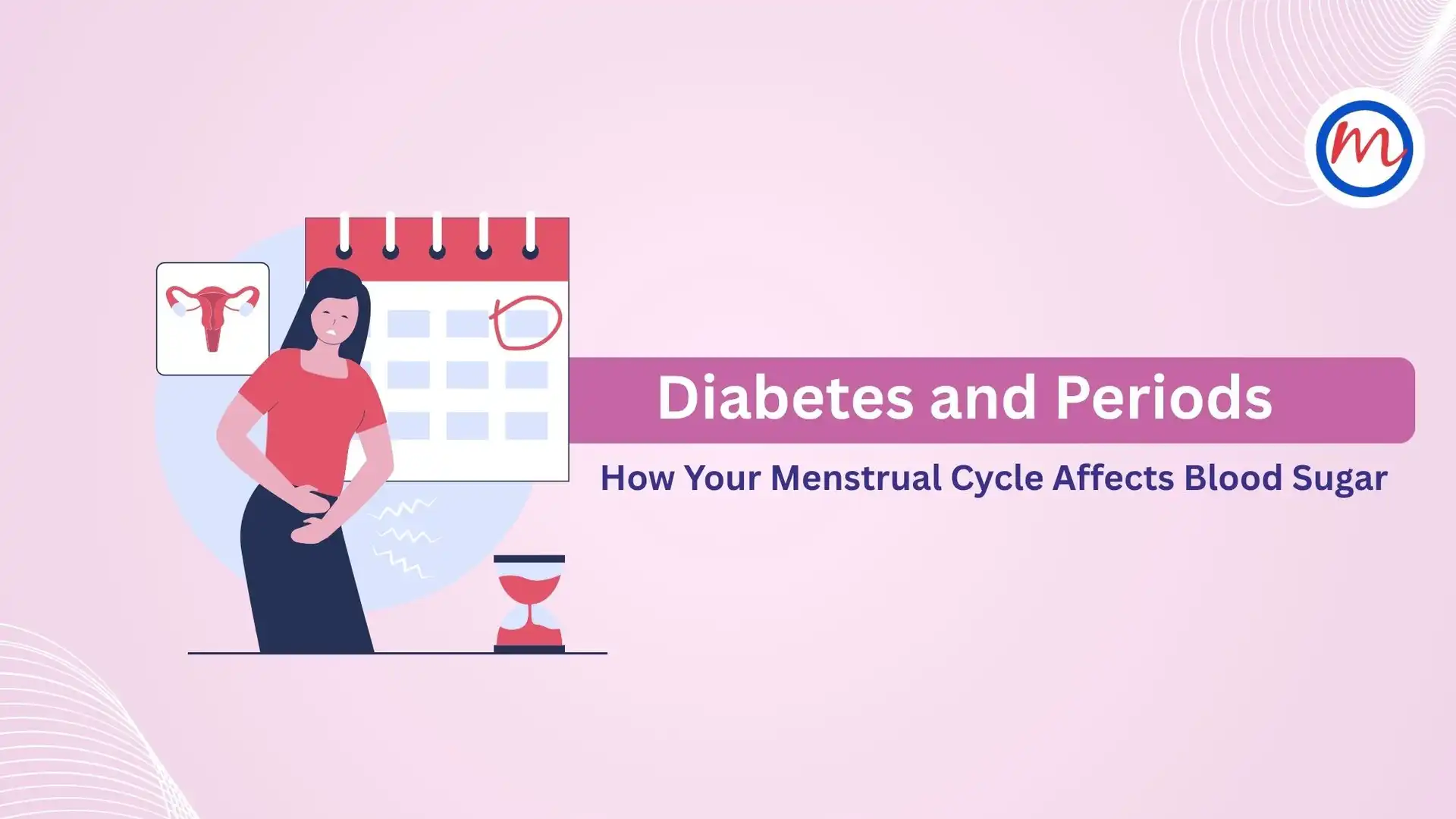Understanding the Role of Fats in Diabetes Meal Planning
Introduction to Diabetes and Meal Planning
Living with diabetes means making informed food choices to maintain balanced blood sugar levels. Carbohydrates often take centre stage in diabetes meal planning.
But fats play a crucial role in overall health and glucose control. Choosing the right fats can support heart health, enhance satiety, and help in blood sugar management. Let’s explore how including healthy fats into a diabetes-friendly diet can be beneficial.
Types of Fats and Their Effects on Blood Sugar Levels
Fats are classified into different types based on their structure and impact on the body:
-
Saturated Fats
- Found in red meat, butter, full-fat dairy, and coconut oil.
- Consume in moderation, as excessive consumption can increase cholesterol levels and the risk of heart disease. This is already a concern for people with diabetes.
-
Trans Fats
- Found in processed foods, margarine, and fried fast foods.
- Increase bad cholesterol (LDL) and insulin resistance.
- Avoid completely.
-
Unsaturated Fats (The Good Fats)
- Monounsaturated Fats (MUFA): Found in olive oil, avocados, and nuts. Help improve heart health and insulin sensitivity.
- Polyunsaturated Fats (PUFA): Found in fatty fish (salmon, mackerel), flaxseeds, and walnuts. Rich in omega-3 and omega-6 fatty acids that reduce inflammation and support heart health.
Replacing saturated and trans fats with healthy unsaturated fats can improve insulin response. It also helps maintain stable blood sugar levels.
Including Healthy Fats into a Diabetic Diet
Including healthy fats into a diabetes meal plan doesn’t have to be complicated. Here are some practical ways to do so:
- Use Healthy Cooking Oils: Opt for olive oil, avocado oil, or flaxseed oil instead of butter or margarine.
- Add Nuts and Seeds: Snack on almonds, walnuts, or chia seeds to get a dose of healthy fats and fibre.
- Include Fatty Fish: Have salmon, sardines, or mackerel twice a week for omega-3 benefits.
- Choose Avocados: Mash avocados on whole-grain toast or add them to salads for a creamy, nutrient-rich addition.
- Limit Processed and Fried Foods: Avoid store-bought processed snacks and deep-fried items that contain unhealthy trans fats.
Meal Ideas for a Balanced Diabetic Diet with Healthy Fats:
Breakfast:
- Sprouted moong chilla with a side of homemade mint chutney.
- Ragi porridge with chia seeds and unsweetened almond milk.
Lunch:
- Mixed millet roti with palak paneer (made with minimal oil) and a cucumber salad.
- Brown rice with sambar (tempered with a little sesame oil) and a side of sautéed green beans with coconut.
Dinner:
- Grilled fish (pomfret or seer fish) marinated in mustard oil and served with sautéed spinach.
- Vegetable dalia (broken wheat) khichdi with a spoonful of ghee and a bowl of curd.
Snacks:
- A handful of roasted peanuts and flaxseeds.
- Masala buttermilk with a few almonds.
Addressing Common Misconceptions about Fats and Diabetes
Many people believe that they have to avoid fats when managing diabetes. However, this is a misconception. Here’s the truth:
- Fats do not directly raise blood sugar levels: Unlike carbohydrates, fats have little immediate impact on glucose levels.
- Healthy fats promote satiety: Including the right fats in your meals can help you feel fuller for longer. This can reduce the temptation to snack on unhealthy foods.
- Not all fats are unhealthy: Trans fats are harmful. But monounsaturated and polyunsaturated fats provide essential nutrients and health benefits.
Tips for Making Sustainable Changes to Your Eating Habits
- Start Small: Introduce one healthy fat source at a time to your meals.
- Plan Your Meals: Meal prepping can help ensure you have diabetes-friendly options ready.
- Read Nutrition Labels: Avoid foods with trans fats or oils.
- Stay Hydrated: Sometimes, thirst can be mistaken for hunger, leading to unnecessary snacking.
- Seek Professional Guidance: A registered dietitian can help tailor a meal plan based on your individual needs.
Conclusion: Finding Balance in Your Diabetic Diet through Healthy Fats
Healthy fats are an essential part of a diabetes-friendly diet. By choosing unsaturated fats over unhealthy options, you can improve heart health. You can also maintain steady blood sugar levels, and enjoy delicious, satisfying meals. The key is balance.
Pairing healthy fats with fibre-rich and protein-packed foods ensures optimal nutrition for diabetes management.
By making small, sustainable changes to your diet, you can create long-term habits. This can support both your diabetes control and overall well-being. Start today by including one healthy fat into your next meal and experience the benefits firsthand!



